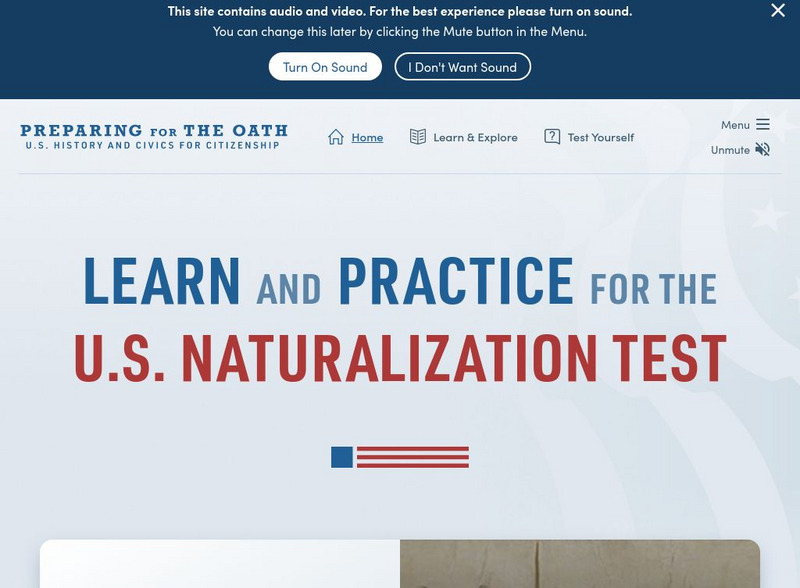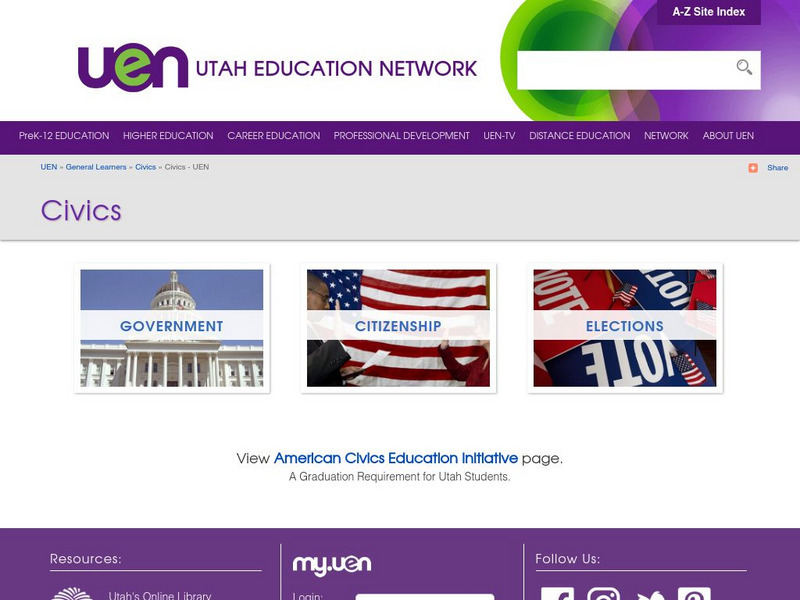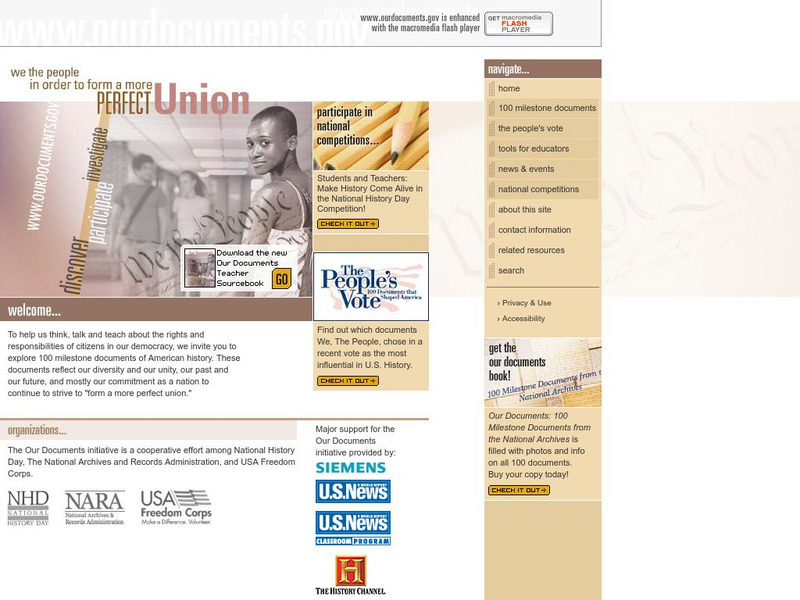Curated OER
Affidavit and Flyers from the Chinese Boycott Case
Students divide into small groups and study one of the three union flyers. Groups share their findings with the whole class and clarify unfamiliar vocabulary terms.
Curated OER
Differences and Settlement in Framing the United States Constitution
Students identify the principles of democracy when framing the United States Constitution. In groups, they analyze the differences that were settled before anyone signed the document. They role play their own activity in which they...
Curated OER
Finding Buck Henry
Pupils read and demonstrate competence in the general skills and strategies of the writing process via the novel "Finding Buck Henry." They recognize complex elements of plot. Students analyze devices used to develop characters in...
Curated OER
The Second Amendment and the Right to Bear Arms
Students examine procedures and processes of the Michigan Supreme Court. They explain the Second Amendment to others. They compare and contrast two cases dealing with the Second Amendment.
Curated OER
Social Studies: Ramadan Observance
Students discuss Ramadan and the practice of fasting. Working in groups, they visit Websites and complete worksheets about the Muslim holiday. Students write letters role-playing as someone unfamiliar with a celebration and then write...
Curated OER
Memorandum of a Conference with President Eisenhower after Sputnik
Learners document and list excerpts from a document that shows how calmly officials reacted to the launching of Sputnik. They research contemporary magazines and newspaper articles of the day as well.
Curated OER
The Cost of Saving
Tenth graders compare accounts provided by the two newspaper articles with the visual account provided by Sue Coe. They articulate how those accounts are alike and different. Students consider the economic choices that made the Hamlet...
Curated OER
Understanding Treaties: Students Explore the Lives of Yakama People Before and After Treaties
Students examine the impact of treaties on the Yakama nation. They discover the importance of land and how they felt when their land was taken away. They role-play the positions of both the Yakama and citizens of the United States.
Smithsonian Institution
National Museum of American History: Preparing for the Oath: u.s. History and Civics for Citizenship
This site from the National Museum of American History, part of the Smithsonian Institution, is a great site for citizens and those learning to become citizens alike. Review the fifteen themes that deal with U.S. history and civics,...
PBS
Pbs Learning Media: Writing in u.s. History: The Bill of Rights
Explore why the Bill of Rights was added to the Constitution and its enduring impact on defining our rights. In this interactive lesson from WGBH, students develop a written argument in response to the question "How does the Bill of...
Utah Education Network
Uen: Civics: Government, Citizenship and Elections
Website sporting three topics main topics in Civics, Government, Citizenship and Elections from which students can explore information through subtopics within each one. With links to primary resources and other related material.
US National Archives
Our Documents: A National Initiative on American History, Civics, and Service
Our Documents is home to one hundred milestone documents that influenced that course of American history and American democracy. Includes full-page scans of each document, transcriptions, background information on their significance, and...
iCivics
I Civics
Explore games and teacher resources on American forms of government, democracy, and civic life.
iCivics
I Civics: Curriculum Units
A large collection of Social Studies units, WebQuests, and games that focuses on teaching students how government works and the importance of being responsible, informed American citizens. Units are linked to state standards. A teacher...
Center For Civic Education
Center for Civic Education: Independence Day: Fundamental Ideas About Government
For this lesson, students will examine some of the fundamental ideas about government that is contained in the Declaration of Independence and the Preamble to the U.S. Constitution. When the lesson is completed, students should be able...
Annenberg Foundation
Annenberg Learner: Democracy in America
A collection of videos focused on American civics. Included with videos are activities, readings and additional resources.
PBS
Pbs Learning Media: Primary Source: Japanese American Internment in World War Ii
This collection uses primary sources to explore Japanese American internment during World War II.
Georgia Department of Education
Ga Virtual Learning: American Government: Civil Liberties and Responsibilities
Georgia Virtual Learning module on civic responsibility in the U.S. offers mult-media resources.
Center For Civic Education
Center for Civic Education: 9/11 and Constitution: American Identity, Diversity
A set of lessons that can be used to commemorate the anniversaries of the terrorist attacks on the United States on September 11, 2001, and the signing of the Constitution on September 17, 1787. They help students to reflect on the...
iCivics
I Civics: Games: Immigration Nation
Interactive online game will help students understand the history of immigration in the United States and teaches about the paths to American naturalization and citizenship.
Independence Hall Association
U.s. History: Rebuilding the Old Order
Reconstruction in the South engendered corruption, greed, a poor economy, and a backlash against the idea of allowing freed slaves to take part in political and civic life. Read about the formation of paramilitary groups who attempted to...
iCivics
I Civics: Tribal Government
As sovereign nations, American Indian and Alaska Native tribes develop and manage their own governments. This lesson examines the varied structures and functions of tribal government as well as the relationship these nations have with...
iCivics
I Civics: Anatomy of the Constitution
This instructional activity gives an article-by-article overview of the structure and function of the U.S. Constitution. Students learn about the duties and powers of the three branches, the amendment process, and the role of the...
iCivics
I Civics: A Dive Into Democracy
The Founding Fathers had many influences. Discover how aspects of Athenian democracy shaped the structure and ideals of the U.S. government.
















